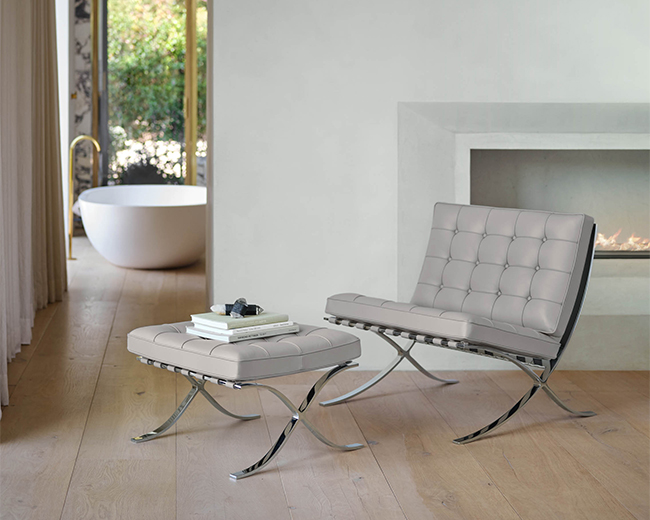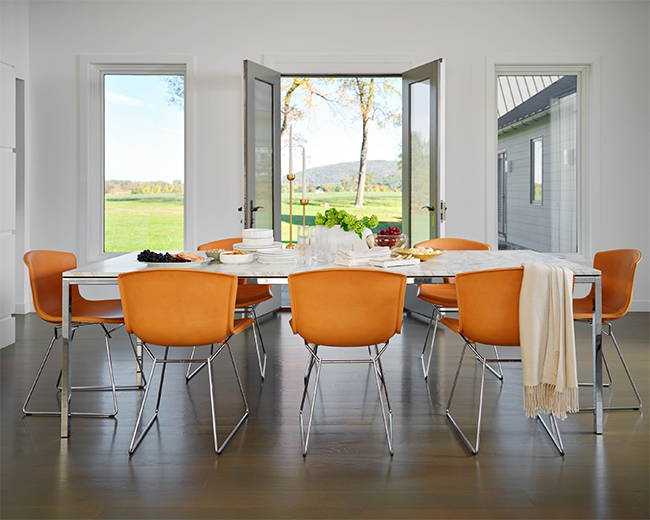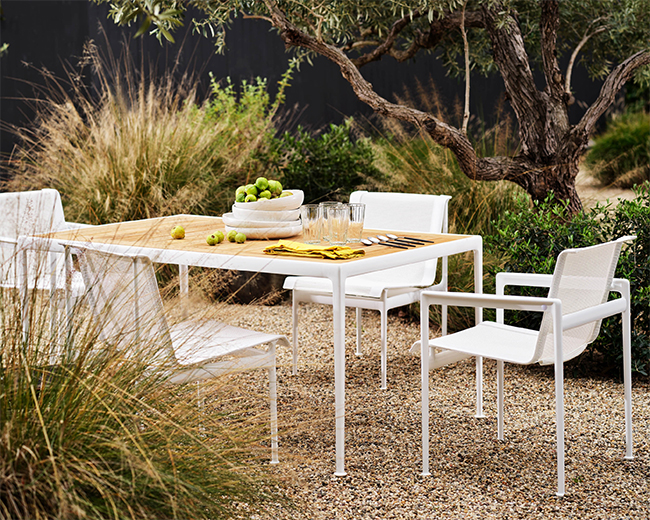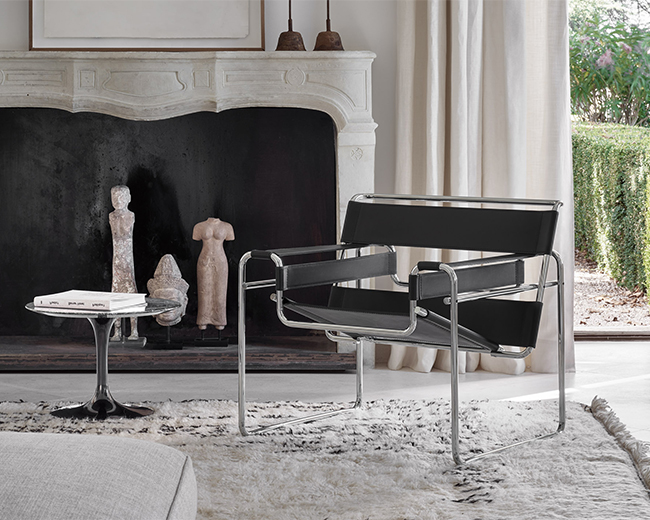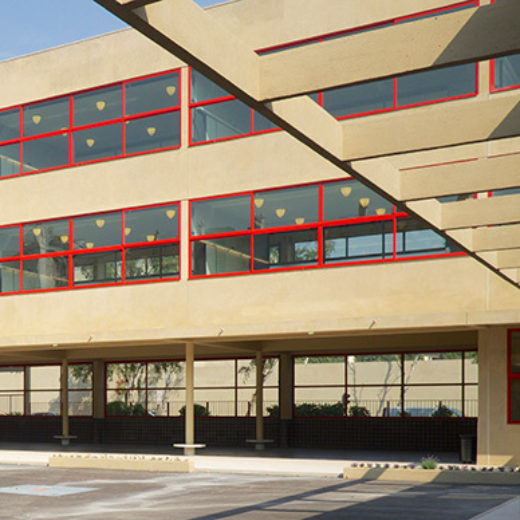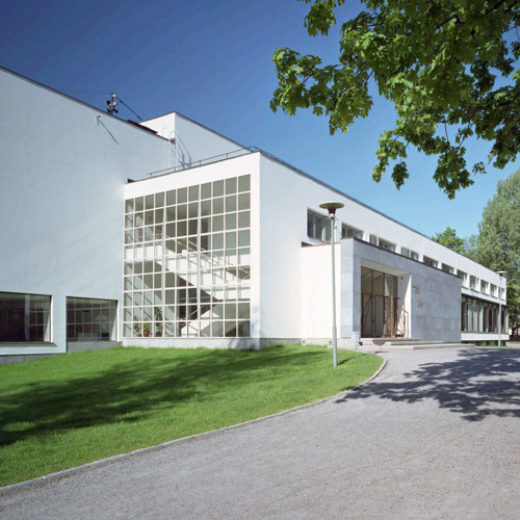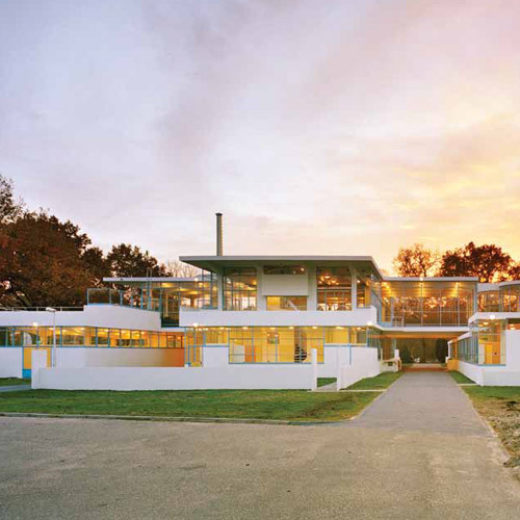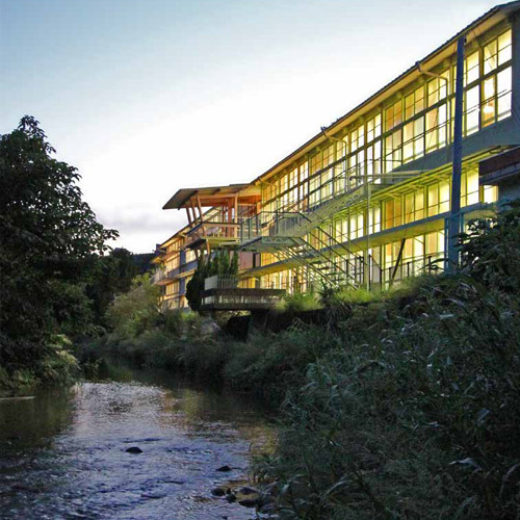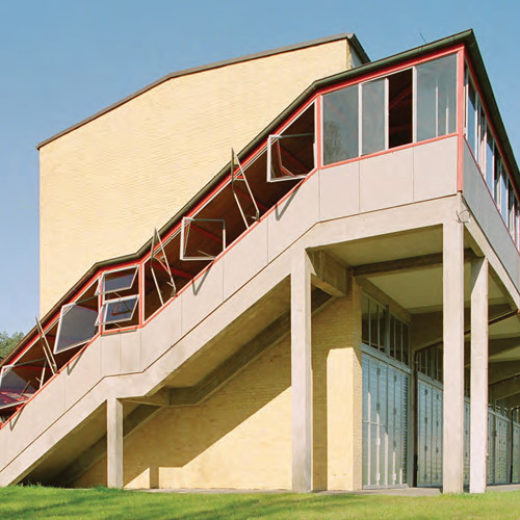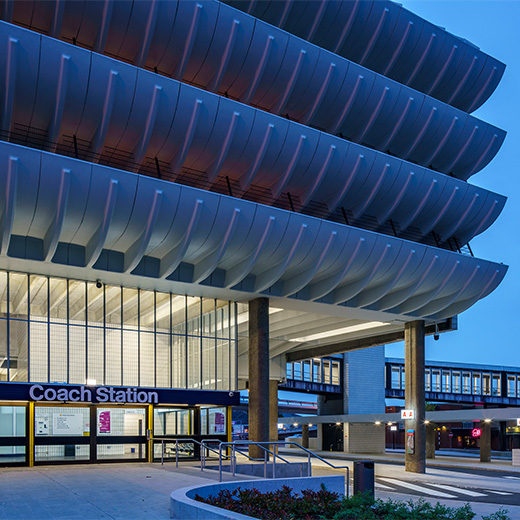Justus van Effen Complex
World Monuments Fund
Justus van Effen Complex
The 2016 World Monuments Fund/Knoll Modernism Prize is awarded to Molenaar and Co. architecten, Rotterdam; Hebly Theunissen architecten, Delft; and Michael van Gessel, Amsterdam for the restoration of the Justus van Effen Complex.
Located in Rotterdam, the Netherlands, the complex was designed by Michiel Brinkman in 1919-1921, and completed in 1922. The Justus van Effen complex is a remarkable example of early Modernism, and is emblematic of the ideals embodied in the Modern movement.
The concept and execution of these 273 dwellings in Rotterdam’s new Spangen district were impressively novel in 1922. Combining typologies of the perimeter block and the row house, the complex presented by far the most radical response to the pressing post WWI housing shortage in the Netherlands. The boldly cantilevered walkway above the second floor reduced vertical circulation space and tied the complex together, while creating a careful balance between the collective and the private. The flat roofs, sparse and delicate ornamentation, careful contrast of bricks with exposed concrete, and open corner loggias tested key elements and strategies of the emerging modern movement.
In the context of Spangen, a neighborhood that has faced challenges in recent years, the choice to conserve and highlight the historic elements of the complex was fittingly radical. This is a large and monumental block, a determining urban entity. This is not discreet, capillary social housing—it is proud architecture. The restoration project re-affirms the value of collective life, one of the social principles of Modernism that holds enduring appeal. This principle also had major influence on subsequent generations of architects, in particular the founders of Team 10 in the 1950s—Jaap Bakema and the Smithsons, and this project celebrates that legacy.
Molenaar and Co. architecten, Hebly Theunissen architecten and Michael van Gessel were able to rise to the challenge of conserving public housing to meet current programmatic needs and changes over time. The project addresses all levels from the building fabric right through to the public and urban domain, and reconciles previous interventions that were damaging to the physical fabric. It also reflects the technological innovation that founded the original design by introducing state of the art energy-saving devices for climate control. These adjustments assured a future for the complex by making it attractive to the next generation, and reflect the commitment of the owner Woonstad to finding an innovative solution.
This project goes beyond technical conservation by introducing new criteria and expectations within the context of social housing. The Justus van Effen Complex reminds us that in fact housing, an ongoing global issue, can be a significant architectural and civic monument and not simply a matter of providing living space for occupants. It recognizes that ascribing architectural qualities to housing is a civic act, creating urban values for residents and citizens of the city as a whole. This combination of a noble original intent, a sensitive rehabilitation, and now—we hope—international recognition of the vital role of housing in making the modern city, makes this project triply commendable.
-Barry Bergdoll, Jury Chairman
